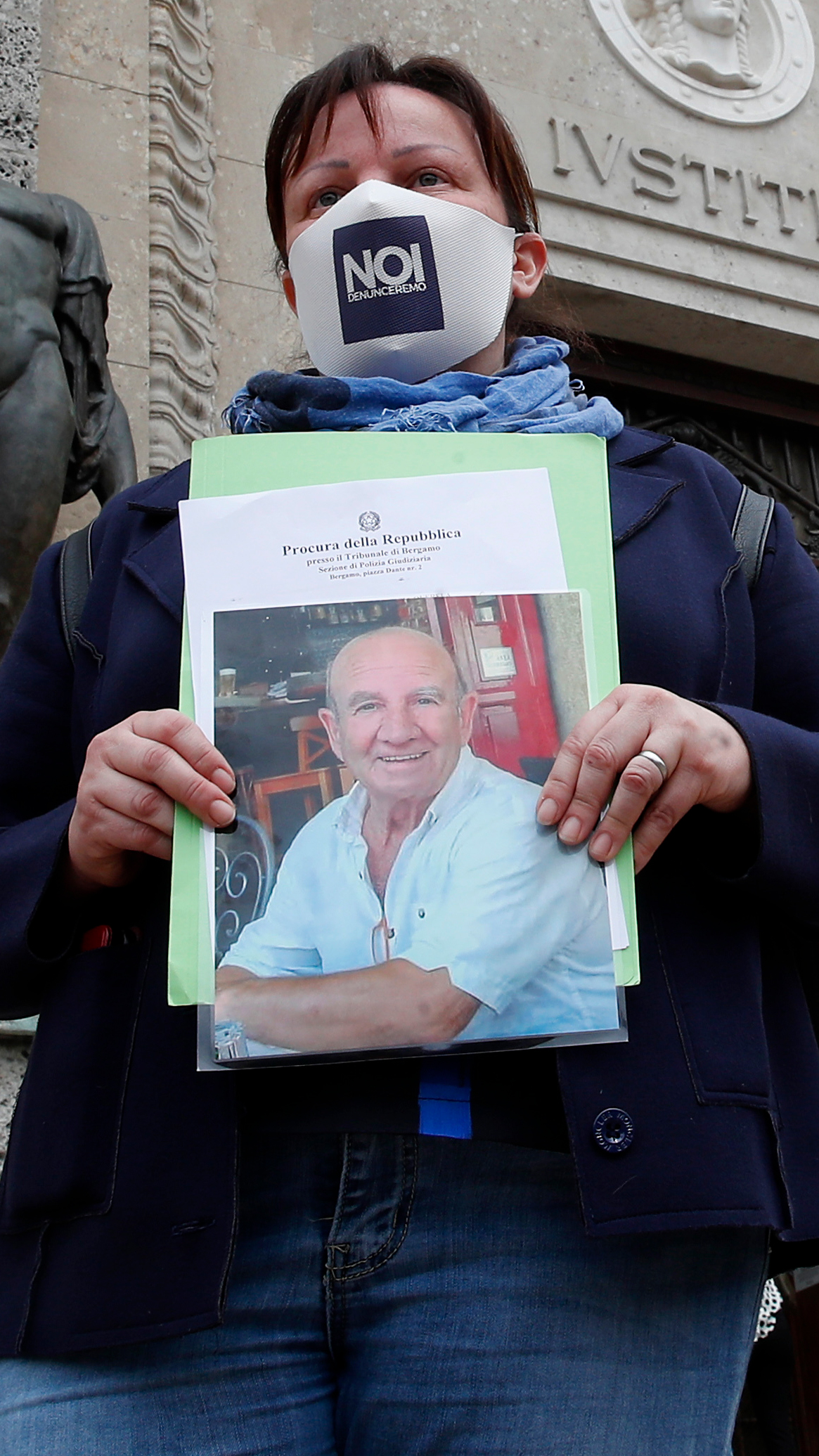03:00

Families of COVID-19 victims in Italy are campaigning to find out if the deaths of their loved ones could have been prevented.
The province of Bergamo was the worst affected by the virus in country, thousands of people died. The city's public prosecutor is investigating what happened across the region during the start of the pandemic in the Lombardy region.
Around 100 representatives of people who died from the virus, queued one by one on Monday to hand in written testimonies into the prosecutor's office in Bergamo.
Many were wearing face marks with the words, "Noi Denunceremo" written on them. In English it means "we will report."
Luca Fusco and his son Stefano created the group on Facebook after the 85-year-old grandfather in the family, Antonio, died with the virus in March.
The group has 60,000 members, many share painful stories of the circumstances of the deaths of family members from the virus. Their stories are being used in evidence as part of the investigation into Italy's response to the COVID-19 outbreak.
"People here believe we locked down too late and the authorities took too much to lockdown, because we detected the virus on 23 February 23 but we locked down the Lombardy region on 8 March," said Stefano Fusco on the steps outside the prosecutor's office.

Members of Noi Denunceremo from left: Laura Capella, Nicoletta Bosica, Stefano Fusco and Arianna Dalba hold pictures of their relatives, victims of COVID-19, in front of Bergamo's court, Italy. /AP Photo/Antonio Calanni.
Members of Noi Denunceremo from left: Laura Capella, Nicoletta Bosica, Stefano Fusco and Arianna Dalba hold pictures of their relatives, victims of COVID-19, in front of Bergamo's court, Italy. /AP Photo/Antonio Calanni.
The first cases in Bergamo were reported from the emergency room at Alzano Lombardo hospital, in the Seriana Valley on 23 February.
Two days before, the first major coronavirus outbreak had occurred in Lodi province 100 kilometers away, where 50,000 people were quarantined and an area with the town of Codogno at its center was declared a "red zone."
Case numbers in the towns of Nembro and Alzano Lombardo escalated but a similar lockdown wasn't implemented until the entire region of Lombardy in northern Italy including Bergamo was quarantined on 8 March.
Lombardy's regional government and representatives from Italy's national government including Prime Minister Giuseppe Conte were interviewed last month as part of the investigation.
The regional government has said it didn't have the power to declare a red zone and the national government said the decision could have been made by the local authorities.
Families from Noi Denunceremo allege that the choice not to lock down some areas was political and not based on science.
After Conte was interviewed by the prosecutor in June, he said he "acted within the science and with conscience."
The families have now submitted around 150 individual complaints to the prosecutor after previously handing in 50 at the start of June.
The investigation will look at whether there is a case for possible criminal negligence and if there is, the Italian judiciary would take the case forward to court.
"I am feeling really angry for how everything has been handled and a lot of anger for what we couldn't do for these people who died. Lots of anger for the institutions that abandoned us," said Sabrina Grigis, whose father Giovanni died with COVID-19 in the valley.